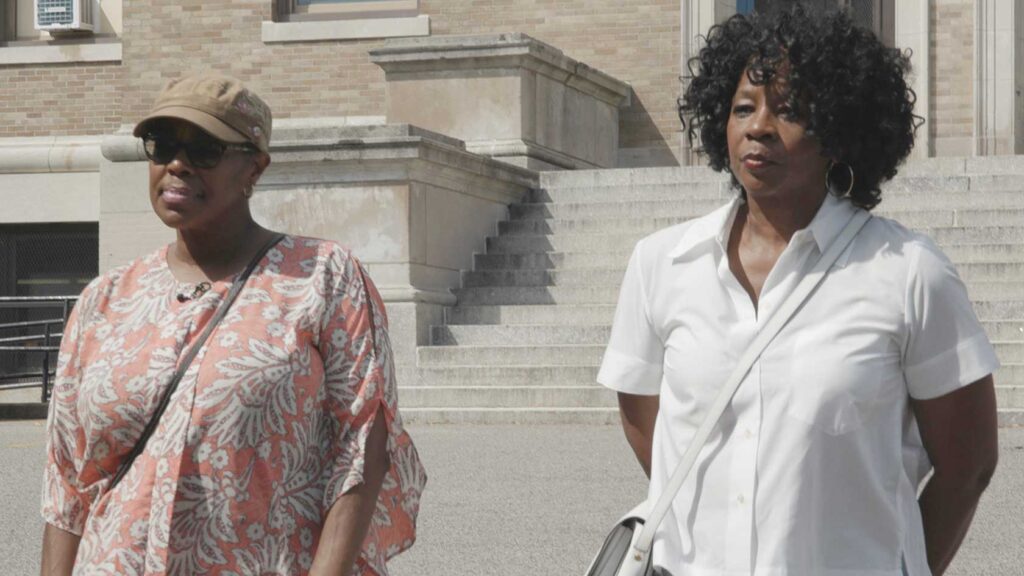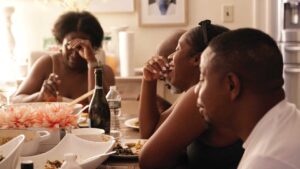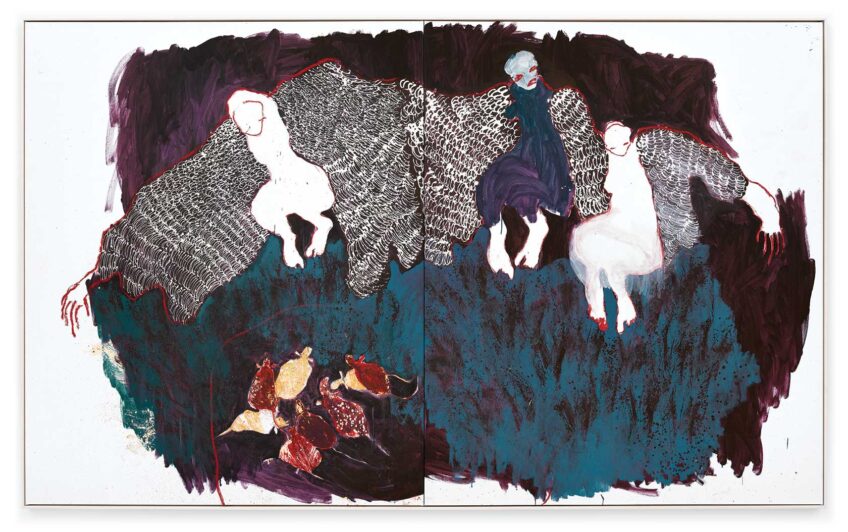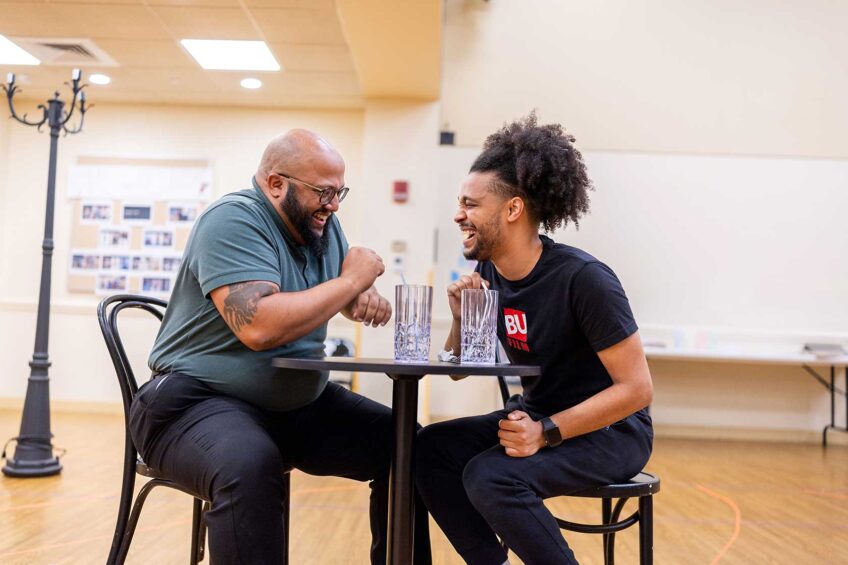Sisters grapple with traumatic legacy of busing in GBH documentary ‘Never Cried’

Banner Arts & Culture Sponsored by Cruz Companies
Leola Hampton and Linda Stark never talked about it. They never asked each other if they were okay. It’s understandable, given the trauma the sisters endured.
Hampton and Stark were teenagers when they were bused from their home in Roxbury to South Boston High in September 1974. After a long struggle for desegregation, Judge Arthur W. Garrity ruled that Boston Public Schools begin integrating and that Black students, like the two sisters, be transported to predominantly white schools.
That was 50 years ago, but for Hampton and Stark, the memory is engraved firmly in their minds.
That day, on September 12, as the bus drove up the hill toward South Boston High in the predominantly white, working-class neighborhood, Stark spotted a sea of people packed onto the sidewalks. It was a welcome committee, she recalled thinking to herself. But as the bus drew nearer, the reality hit her.
Instead of what she had imagined would be a supportive atmosphere, Stark and her younger sister were met with angry white parents and students hurling objects, insults and racial slurs their way. They didn’t understand why. They were children after all.
“You see their angry faces. You see the disdain. You see that everything about you that makes you human they despise,” Hampton says dispiritedly in “Never Cried: Boston’s Busing Legacy,” a documentary short from GBH, available on YouTube.
The film, released on the 50th anniversary of the start of busing and screened at GBH studios last Tuesday, explores the impact of this tumultuous period in Boston’s history on the lives of two of the many students who lived it. Over 23 minutes, the documentary follows the sisters as they reflect on their experiences and, for the very first time since they were students, visit South Boston High, a vestige of a traumatic past.
In a series of vulnerable clips at their homes, church and neighborhoods, the sisters talk about their experiences of enduring and overcoming racism and violence as young teenagers. Using archival footage and photos from what for many remains a painful memory, the film balances the larger story with the perspective of the two sisters, painting a thoughtful picture of how busing made Black children the targets of hate.
This period in Boston’s history was “like a fire,” says Gary Bailey, assistant dean for Community Engagement and Social Justice at Simmons University, in the documentary. “And you watch how a fire consumes itself and keeps consuming everything around it. That’s what this city looked like, and particularly South Boston. How do you then begin to think about erasing that kind of experience from your psyche? You don’t.”
Every day, Hampton and Stark faced the same vitriol and mistreatment, and the weight of the trauma manifested itself physically. Hampton began grinding her teeth at night, and her blood pressure increased.
Stark, on the other hand, suppressed the trauma for decades. Only recently did she begin to confront it. The memories resurfaced as dreams when she and her sister started talking about what they went through while filming the documentary.
On screen, for the first time since it happened, Stark cries about the experience. She had never cried about it before.
“I don’t know if I was trying to be strong or whatever,” she says tearfully. “Maybe I was so angry that I couldn’t cry.”While the film focuses on the memories of the 1970s, viewers also get to witness the sisters’ present lives, rich with heartwarming family relationships and fulfilling professions. Stark enjoys singing and works with kids, and Hampton writes and frequently cooks for her family, which includes a handful of grandchildren.
“I think it’s important that our story be told not from the perspective of this victim, but as survivors,” Hampton said. The events weighed greatly on her as a young girl, but “it never stole my joy.”
At the end of the documentary, Hampton and her sister make their way to South Boston High for the first time, taking the same journey they did that day 50 years ago. A “Black Lives Matter” sign hangs in the window. There is no angry mob, no mass of police. In their place are decades’ worth of healing between then and now, and while some things have improved, the sisters acknowledge the work left to be done.
As they make their way up the steps of the school building, Stark begins to cry.
“You okay?” her sister asks.
She nods.







